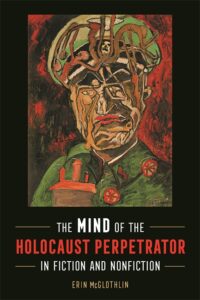As the final survivors of the Holocaust pass away, the Nazi genocide of European Jews is slipping out of living memory. Yet antisemitic rhetoric persists and indeed surges internationally, as do ignorance, trivialization, and denial of the Holocaust.
A new multi-year collaboration between researchers at the University of Leeds and Washington University seeks to reconsider the history of and emerging developments in Holocaust literature at an acute moment in history. The project is funded by a $1.3 million grant from the United Kingdom Arts and Humanities Research Council.
With our collaborative project, which will integrate the cutting-edge research of experts from around the world, we aim to set the tone for the scholarly discourse on the literature of the Holocaust for the next 25 years.
Erin McGlothlin, vice dean of undergraduate affairs and professor of German and Jewish studies
Together with lead investigator Stuart Taberner (University of Leeds), Erin McGlothlin, vice dean of undergraduate affairs and professor of German and Jewish studies, is convening a team of more than 40 international researchers to produce a series of publications fundamentally rethinking the field of Holocaust narrative, a corpus of literature that encompasses many thousands of texts.
Writers responded in real time to Hitler’s rise in power and the genocidal measures carried out by Nazi Germany and its allies, producing a large body of testimony, poetry, and fiction documenting the atrocities carried out by the Nazi regime. The field of Holocaust literature also examines works that focus on the aftermath of these events as well as their continued relevance for contemporary society and culture.
With Anika Walke, associate professor of history; women, gender, and sexuality studies; Jewish, Islamic, and Middle Eastern studies; and of global studies at Washington University, McGlothlin created a year-long, first-year Ampersand seminar on the Holocaust that culminates in a study trip to Holocaust-related sites in Germany, Poland, and Lithuania.
“The Mind of the Holocaust Perpetrator in Fiction and Non-Fiction”

Eric McGlothlin’s book, “The Mind of the Holocaust Perpetrator in Fiction and Non-Fiction” (Wayne State University Press, 2021) examines texts that portray the inner experience of Holocaust perpetrators: portraits of real-life perpetrators in nonfictional interviews and analyses from the 1960s and 1970s and more recent fictional texts that imagine the perspective of their invented perpetrator-narrators. The book explores new modes of engagement with ethically fraught questions regarding these perspectives.
Michael Rothberg, American literature and memory studies scholar, wrote: “In this much-anticipated work, McGlothlin draws on her considerable knowledge of narrative theory to offer the most substantial and sustained exploration of the literature of perpetration in English to date. Expertly bringing together fictional and nonfictional representations of Nazi perpetrators, McGlothlin takes us through an ethical minefield with nuance and sensitivity. The careful work of reading undertaken here is itself a strong argument for the value of literary studies in confronting some of the most significant and troubling areas of human history and culture.”
Related content
Second Generation Holocaust Literature
How do the memories of one group affect future generations? Erin McGlothlin explores Second Generation Holocaust Literature and discusses the concept of “post memory.” (from 2013 but worth including)
Lest We Forget
“Lest We Forget,” Luigi Toscano’s exhibition of nearly 100 portraits of Holocaust survivors, was displayed at Washington University in fall of 2022.
